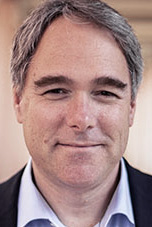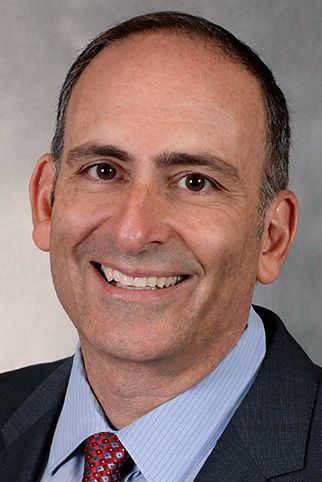

 In the coming months, we're set to witness the largest investment in America's digital infrastructure in history: $42.5 billion that should be a true lifeline for millions of Americans struggling with slow, unreliable, or nonexistent internet connections. But as with any massive government spending program, the devil is in the details - and Republican lawmakers, led by Texas Senator Ted Cruz, are doing their best to ensure those details work against their own constituents. more
In the coming months, we're set to witness the largest investment in America's digital infrastructure in history: $42.5 billion that should be a true lifeline for millions of Americans struggling with slow, unreliable, or nonexistent internet connections. But as with any massive government spending program, the devil is in the details - and Republican lawmakers, led by Texas Senator Ted Cruz, are doing their best to ensure those details work against their own constituents. more
 Abusive behavior that leverages the domain name system (DNS) continues to be a problem, with a reach that has been widely and credibly documented. There is little doubt that bad actors continue to use the DNS for nefarious and costly purposes. While the amendments made in 2024 to ICANN's Registry Agreement (RA) and Registrar Accreditation Agreement (RAA) were a step in the right direction, more advanced tools are needed to bring abuse rates down. more
Abusive behavior that leverages the domain name system (DNS) continues to be a problem, with a reach that has been widely and credibly documented. There is little doubt that bad actors continue to use the DNS for nefarious and costly purposes. While the amendments made in 2024 to ICANN's Registry Agreement (RA) and Registrar Accreditation Agreement (RAA) were a step in the right direction, more advanced tools are needed to bring abuse rates down. more
 As the saying goes, elections have consequences. The consequences are underscored in the recent U.S. Presidential election and the potential impact on the Internet, infrastructure and cybersecurity. In the context of the CircleID global community, it seems worth asking where things are headed? It does beg for an analysis of what is actually proposed in Presidential Transition Project 2025 related to things internet and cybersecurity. more
As the saying goes, elections have consequences. The consequences are underscored in the recent U.S. Presidential election and the potential impact on the Internet, infrastructure and cybersecurity. In the context of the CircleID global community, it seems worth asking where things are headed? It does beg for an analysis of what is actually proposed in Presidential Transition Project 2025 related to things internet and cybersecurity. more
 The European Union (EU) has set a high bar by tackling domain name system (DNS) abuse head on via government regulation and seems to have successfully resisted attempts to water down DNS stewardship obligations. Recent guidance from a key European Commission cooperation group (the NIS Cooperation Group) handling sections of the Network and Information Security Directive (NIS2) intends for a robust implementation of Article 28, which will go a long way toward helping to mitigate some of the longstanding problems that persist in the DNS. more
The European Union (EU) has set a high bar by tackling domain name system (DNS) abuse head on via government regulation and seems to have successfully resisted attempts to water down DNS stewardship obligations. Recent guidance from a key European Commission cooperation group (the NIS Cooperation Group) handling sections of the Network and Information Security Directive (NIS2) intends for a robust implementation of Article 28, which will go a long way toward helping to mitigate some of the longstanding problems that persist in the DNS. more
The NIS Cooperation Group has released critical guidance for the implementation of Article 28 under the NIS 2 Directive, focusing on registration data accuracy obligations for top-level domain (TLD) registries, registrars, and related services in the EU. more
 The "Decoding Internet Governance Stakeholders" series of articles invites the community to ponder what underlies the labels that define our interactions, roughly 20 years after the "Tunis Agenda for the Information Society" called for the "full involvement of governments, business entities, civil society and intergovernmental organizations," as well as to "make full use of the expertise of the academic, scientific and technical communities." more
The "Decoding Internet Governance Stakeholders" series of articles invites the community to ponder what underlies the labels that define our interactions, roughly 20 years after the "Tunis Agenda for the Information Society" called for the "full involvement of governments, business entities, civil society and intergovernmental organizations," as well as to "make full use of the expertise of the academic, scientific and technical communities." more
 Do human rights come into the picture when technology and policy work are involved? If so, where? This is a question that has come up multiple times during the last dozen years, and occasionally even before, in Internet Governance discussions. These discussions have included debates on whether human rights were specifically applicable to protocol design or to the organizations developing protocol standards. more
Do human rights come into the picture when technology and policy work are involved? If so, where? This is a question that has come up multiple times during the last dozen years, and occasionally even before, in Internet Governance discussions. These discussions have included debates on whether human rights were specifically applicable to protocol design or to the organizations developing protocol standards. more
 Anybody not involved in the telephone business will probably be surprised to find that the old TDM telephone networks are still very much alive and in place. The old technologies were supposed to be phased out and replaced by digital technologies. The FCC started talking about this before 2010. In 2013, Tom Wheeler, the FCC Chairman at the time, announced an effort to force the needed changes, which was dubbed the IP Transition. more
Anybody not involved in the telephone business will probably be surprised to find that the old TDM telephone networks are still very much alive and in place. The old technologies were supposed to be phased out and replaced by digital technologies. The FCC started talking about this before 2010. In 2013, Tom Wheeler, the FCC Chairman at the time, announced an effort to force the needed changes, which was dubbed the IP Transition. more
 On June 9 CircleID published an insightful article by Thomas Rickert entitled "Demystifying Art 28 NIS2." In that piece Thomas set forth two alternative interpretations of Article 28(6) of NIS2, and argued that TLD registries should not be required to maintain a separate database of the registrant data under NIS2. In my view, Thomas' approach is inconsistent with the remainder of Article 28, and would not achieve the goals of NIS2 to improve cybersecurity across the EU member states. more
On June 9 CircleID published an insightful article by Thomas Rickert entitled "Demystifying Art 28 NIS2." In that piece Thomas set forth two alternative interpretations of Article 28(6) of NIS2, and argued that TLD registries should not be required to maintain a separate database of the registrant data under NIS2. In my view, Thomas' approach is inconsistent with the remainder of Article 28, and would not achieve the goals of NIS2 to improve cybersecurity across the EU member states. more
 In the same way monarchs are proclaimed - by powerful stakeholders attending a coronation and not objecting - the UN's International Telecommunication Union (ITU) took a mandate last week to coordinate AI Safety worldwide, with most industry leaders and relevant UN agencies were present when it did so. more
In the same way monarchs are proclaimed - by powerful stakeholders attending a coronation and not objecting - the UN's International Telecommunication Union (ITU) took a mandate last week to coordinate AI Safety worldwide, with most industry leaders and relevant UN agencies were present when it did so. more
 On December 14, 2022, the European Parliament adopted the Directive on measures for a high common level of cybersecurity across the Union (Directive (EU) 2022/2555) hereinafter referred to as "NIS2"), which was published in the official journal on December 27, 2022. Being a directive, NIS2 requires transposition into national law. According to Art. 41 of NIS2, the transposition into national law must take place by October 17, 2024 and the measures must be applied as of October 18, 2024. more
On December 14, 2022, the European Parliament adopted the Directive on measures for a high common level of cybersecurity across the Union (Directive (EU) 2022/2555) hereinafter referred to as "NIS2"), which was published in the official journal on December 27, 2022. Being a directive, NIS2 requires transposition into national law. According to Art. 41 of NIS2, the transposition into national law must take place by October 17, 2024 and the measures must be applied as of October 18, 2024. more
 Sixty years ago, Paul Baran and Sharla Boehm at The RAND Corporation released a seminal paper that would fundamentally reshape the cyber world forever more. Their paper, simply known as Memorandum RM -- 1303, described how specialized computers could be used to route digital communications among a distributed universe of other computers. It set the stage for a flood of endless developments that resulted in the interconnected world of everything, everywhere, all the time. more
Sixty years ago, Paul Baran and Sharla Boehm at The RAND Corporation released a seminal paper that would fundamentally reshape the cyber world forever more. Their paper, simply known as Memorandum RM -- 1303, described how specialized computers could be used to route digital communications among a distributed universe of other computers. It set the stage for a flood of endless developments that resulted in the interconnected world of everything, everywhere, all the time. more
 Section 706 of the Telecommunications Act of 1996 orders the FCC to "encourage the deployment on a reasonable and timely basis of advanced telecommunications capability to all Americans." On October 25, The FCC issued a notice of inquiry (NOI) into how well we are doing and invited comments. The NOI points out that COVID and the concomitant increase in the use of interactive applications has "made it clear that broadband is no longer a luxury... more
Section 706 of the Telecommunications Act of 1996 orders the FCC to "encourage the deployment on a reasonable and timely basis of advanced telecommunications capability to all Americans." On October 25, The FCC issued a notice of inquiry (NOI) into how well we are doing and invited comments. The NOI points out that COVID and the concomitant increase in the use of interactive applications has "made it clear that broadband is no longer a luxury... more
 On October 12, 2023, the 18th Internet Governance Forum (IGF) ended in Kyoto. It was, with more than 9000 registered participants, the largest IGF since its inception in 2006. UN Secretary-General Antonio Guterres and Japan Prime Minister Fumio Kishida opened the five-day meeting. The tangible output included 89 "IGF Messages from Kyoto," four substantial reports with recommendations from IGF Policy Networks (PN) for Artificial Intelligence... more
On October 12, 2023, the 18th Internet Governance Forum (IGF) ended in Kyoto. It was, with more than 9000 registered participants, the largest IGF since its inception in 2006. UN Secretary-General Antonio Guterres and Japan Prime Minister Fumio Kishida opened the five-day meeting. The tangible output included 89 "IGF Messages from Kyoto," four substantial reports with recommendations from IGF Policy Networks (PN) for Artificial Intelligence... more
 With the strong possibility of a new Netmundial-style event being organized under the stewardship of CGI.br in 2024, the Internet governance community ought to reflect upon the benefits that this could bring to all stakeholders. In a scenario of uncertainty over the several processes affecting the future of the global network, there is value in taking another look at the original event's collaborative outcomes document, which summarized much of what was then understood to be core principles of Internet governance. more
With the strong possibility of a new Netmundial-style event being organized under the stewardship of CGI.br in 2024, the Internet governance community ought to reflect upon the benefits that this could bring to all stakeholders. In a scenario of uncertainty over the several processes affecting the future of the global network, there is value in taking another look at the original event's collaborative outcomes document, which summarized much of what was then understood to be core principles of Internet governance. more